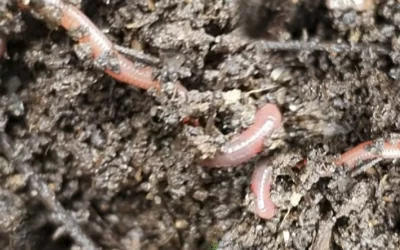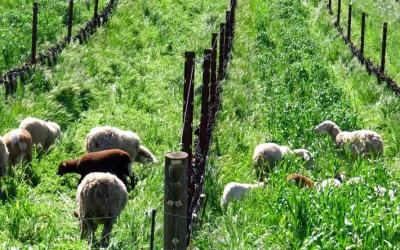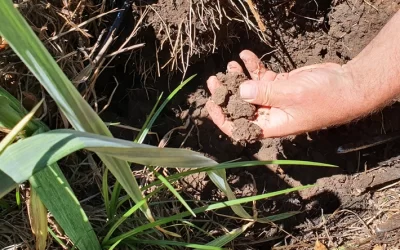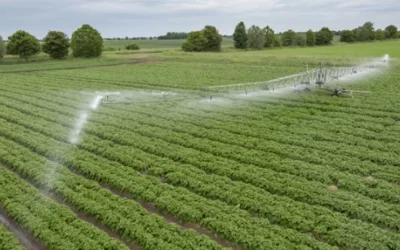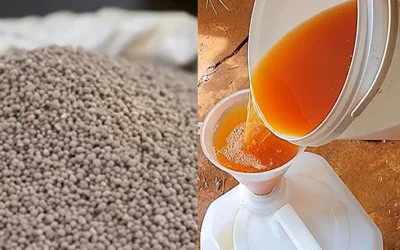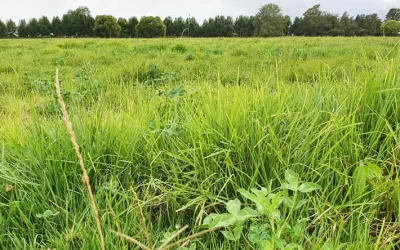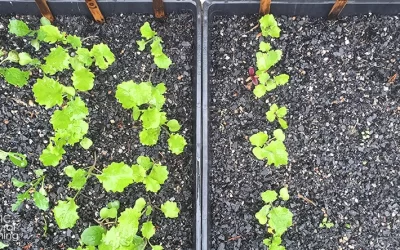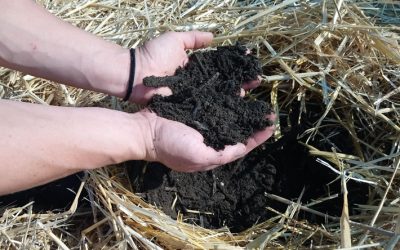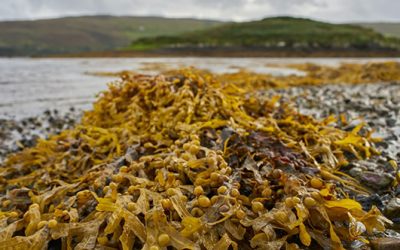Natural Farming for Nutrition
Soil Microbes: Nature’s Solution to Cutting Costs on Aussie Farms
If you're looking to reduce costs on the farm and boost your soil health at the same time, then focusing on soil microbes might just be the answer you've been waiting for. Soil microbes – those tiny, hardworking critters that live in the soil – are a farmer’s best...
Agroforestry: Getting the Balance Right on Your Australian Farm
With the right management and a balanced approach, agroforestry can give your farm long-term benefits, reducing operational costs while contributing to a more sustainable farming future.
How Poor Water Quality Can Reduce Fertiliser Performance
Water quality is a critical factor that can make or break the success of your fertiliser applications on the farm. Whether you’re using organic fertilisers like compost, or synthetic options, the quality of your water can directly impact nutrient availability, soil...
Tailoring Organic Fertilisers for Different Soil Types in Australia
Australia has a diverse landscapes giving rise to a wide variety of soil types, each with unique challenges and requirements for optimal agricultural productivity. Understanding how to tailor organic fertilisers to the specific needs of your soil type is key to...
Why No-Till Growing is Revolutionising Small Mixed Crop Farming
No-till farming is fast becoming a popular choice among small mixed crop growers, and for good reason. This sustainable farming technique offers numerous benefits that improve soil health, boost water retention, and streamline farm operations. If you're tired of...
How a SONIC DIY Biofertiliser System Pays for Itself in Under 6 Months
As Australian farmers, you're always looking for ways to save costs while maintaining healthy soil and producing the best quality produce. One investment that can quickly pay off is setting up a DIY biofertiliser system. If you're tired of paying for expensive...
Dandelion: Its Role In Pasture Management—Friend or Foe?
Dandelions, Taraxacum officinale, are often dismissed as invasive weeds, but in the context of regenerative farming, they can offer a range of surprising benefits. With their deep taproots, ability to break up compacted soil, and capacity to bring up valuable trace...
Top 10 Strategies for Efficient Water Management on Australian Farms
Effective agricultural water management is crucial for sustaining productivity and ensuring the long-term viability of farming operations. In Australia, where water scarcity and unpredictable climate conditions pose significant challenges, implementing efficient water...
7 Time-Tested Natural Organic Fertilisers for Any Australian Farm
If you’re looking to boost your farm’s productivity without breaking the bank, you’re in the right place. In this article, we’ll delve into seven time-tested, cost-effective, organic fertilisers that have been the backbone of sustainable farming for generations. From...
Biological Seed Treatment: Benefits and Methods
Biological seed treatment is a 100% natural approach that involves the application of active ingredients such as beneficial fungi and bacteria.
The 7 Most Cost-Effective Soil Regeneration Strategies, Australia
Soil fertility is the foundation of a thriving garden or farm, yet many overlook the delicate balance required to maintain it. Imagine your plants bursting with health, producing bountiful yields without the constant need for synthetic inputs. Achieving this dream is...
Discover the Top 6 Benefits of Regenerative Farming in Australia
Regenerative agriculture is gaining traction worldwide, and Australia is no exception. This innovative approach to farming offers numerous benefits that go beyond conventional agricultural practices. The distinguishing factor of the regenerative farming philosophy is...
3 Ways To Build Soil Biology for Optimal Crop Resilience
Soil biology plays a crucial role in the health and productivity of crops. By understanding how to build soil biology, farmers can enhance crop resilience and improve overall agricultural sustainability. Building soil biology can be achieved through various practices...
Top 3 Strategies To Get The Most From Your Biological Fertilisers
When it comes to fertilisation, Aussie farmers are always looking for cost-efficient strategies that improve productivity without draining the budget. One highly effective approach gaining traction among regenerative farmers is the use of biologically active...
Liquid Fertiliser vs Dry Fertiliser
Discover the pros and cons of dry fertiliser vs liquid fertiliser and learn which type is best suited for your growing needs.
How The Ocean Supports Agriculture: 3 Key Contributions
Fish and sea plants, like seaweed, spend its entire life cycle, immersed in a mineral rich bath, absorbing all the nutrients it needs to live, grow, and reproduce.
Why Your Soil Needs Biology
Beneficial soil microorganisms have more functions than science knows. The beneficial influences of soil microbes on plant growth are countless. In this article we'll explore some of these influences and find out why your soil needs biology more than minerals.6 Key...
7 Reasons why Farmers are Making the Shift to Natural Fertilisers
As the world becomes increasingly aware of the importance of sustainability, many farmers are moving away from using chemical fertilisers, towards a more natural approach, like using Fish Hydrolysate Fertiliser. In this article we uncover a few reasons why farmers...
How to Increase Soil Fertility with Mixed-Species Planting
Why is Plant Diversity Beneficial to Soil Fertility? Plant diversity is essential for a thriving ecosystem. When a variety of plant species are grown together, it offers numerous benefits to the soil and overall environmental health. 1. Plant Root Variation Plant...
How To Boost Seed Germination using Biological Fertiliser
The success of crop production largely depends on the proper conditions for seed germination, ensuring that the seeds sprout and establish healthy roots. When it comes the seeds germination, the treatment of seeds using naturally fermented biological fertilisers has...
Regenerative Agriculture Australia: Benefits and Practices
Regenerative agriculture is an approach to farming and land management that focuses on rebuilding soil health and restoring degraded land. This holistic method utilises a variety of practices that work in harmony to improve the overall ecosystem. By implementing these...
How To Cultivate Resilient Orchards Using Fish Hydrolysate
Liquid fish hydrolysate is an effective tool for orchardists looking to build resilience in their crops. As a natural biostimulant, fish hydrolysate helps plants withstand environmental stresses and bolster their overall health. By applying this nutrient-rich...
5 Ways to Build Soil Biology for Long-Term Profitability
Building soil biology is a crucial aspect of sustainable agriculture and gardening practices. By encouraging the return of microbial life and replenishing the soil food web, we can create a self-sufficient network that benefits plant health and overall ecosystem...
7 Incredible Benefits of Seaweed Fertiliser for Crop Health
Seaweed can improve soil quality, drought resistance, cold resistance, growth promotion, pest resistance, yield, and it’s 100% natural!











